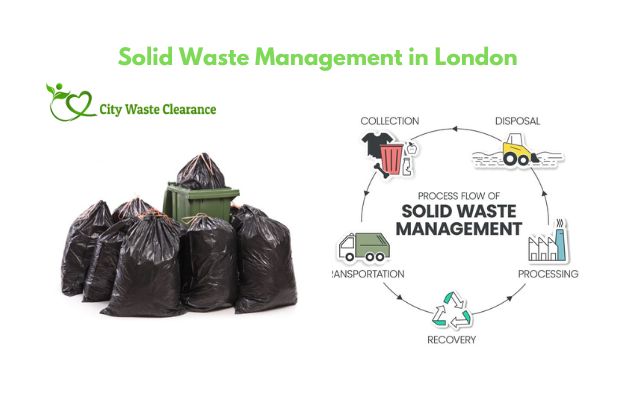Solid waste management in London involves the collection, transportation, processing, and disposal of waste materials. London aims to reduce landfill use and increase recycling rates.
waste management system is essential for maintaining a clean, sustainable city. The city has implemented various strategies to handle the vast amounts of waste generated daily. These include efficient waste collection services, recycling programs, and waste-to-energy initiatives. The goal is to minimize environmental impact and promote resource conservation.
Public awareness campaigns and community involvement play crucial roles in these efforts. By encouraging residents to recycle and reduce waste, London strives to achieve its sustainability targets. Effective solid waste management ensures a healthier environment and a greener future for London.
Current Solid Waste Management in London
London adopts innovative methods for solid waste management, emphasizing recycling and waste-to-energy solutions. The city aims to reduce landfill use, promoting sustainable practices among residents.
Collection Methods
In London, waste collection is done by local councils. Residents use wheelie bins and recycling boxes. Waste is collected weekly or bi-weekly. Trucks pick up the bins and take the waste to processing centers. Special trucks handle large items like furniture. Some areas have communal bins for apartments.
Recycling Initiatives
London has many recycling programs. People can recycle paper, glass, and plastic. There are recycling bins in public places. Schools teach kids about recycling. Some stores offer recycling points for old electronics. Residents are encouraged to compost food waste. This helps reduce the amount of waste going to landfills.
Technological Innovations
Smart bins help keep cities clean. They use sensors to detect trash levels. Once full, they send alerts to waste collectors. This saves time and makes waste collection more efficient. Smart bins also reduce littering. They encourage people to throw trash in the right place. These bins are connected to a network. This network helps in monitoring and managing waste better.
Waste-to-energy plants turn trash into electricity. They burn waste to produce heat. This heat generates steam. The steam drives turbines to create electricity. This process reduces landfill waste. It also provides a renewable energy source. These plants help cut down on greenhouse gases. They make cities more sustainable and eco-friendly.
Policy And Regulation
London’s solid waste management policies ensure efficient waste reduction, recycling, and disposal. Strict regulations promote environmental sustainability and public health.
Government Guidelines
The UK government has set strict rules. These rules help manage waste in London. Waste collection must follow these rules. Residents must sort their waste. Sorting helps recycling and reduces landfill use. Businesses also have to follow these rules. They must recycle as much as possible. The government provides bins and bags for recycling.
Compliance Issues
Non-compliance with waste rules can lead to fines. Fines can be very high. This encourages people to follow the rules. Inspectors check if rules are followed. They visit homes and businesses. Reports are made about compliance. These reports help improve the system. Education is also important. People need to know how to sort waste correctly. Schools and community groups help with education.
Community Involvement
Public awareness campaigns help people understand the importance of proper waste management. Schools, businesses, and local councils often run these campaigns, using posters, social media, and events to spread the message. These campaigns teach people how to sort their waste correctly and explain the benefits of recycling and composting. More people join in when they understand the impact of waste on the environment.
Citizen participation is key to managing waste effectively. Many neighborhoods organize clean-up events, where families and friends come together to pick up litter. Some communities have waste sorting stations, where people can bring their recyclables. Many cities offer compost bins to residents, which help turn food waste into useful compost. Everyone’s effort makes a big difference in keeping the city clean.
Challenges And Future Directions
Funding for solid waste management is often limited, making it hard to improve services. Local councils struggle to find enough money, and resources like trucks and bins are also costly. Efficient waste management requires continuous investment. Without proper funding, waste piles up, affecting the environment and public health. Government grants are sometimes available, but not always enough.
Recycling programs can reduce waste. They help save resources. Composting is another good option. It turns organic waste into useful compost. Waste-to-energy plants can burn waste to create energy. This reduces landfill use. Public awareness is key. People need to know how to sort their waste. Education campaigns can help with this. Community involvement is also crucial. Everyone needs to do their part.
Frequently Asked Questions
What Is Solid Waste Management?
Solid waste management involves collecting, treating, and disposing of waste materials responsibly.
How Is Waste Collected In London?
Waste in London is collected through curbside pickup, recycling centers, and special waste collection services.
Why Is Recycling Important In London?
Recycling reduces landfill waste, conserves resources, and helps protect the environment in London.
Conclusion
Solid waste management in London requires collective effort and innovative solutions. Residents play a crucial role by recycling and reducing waste. Local authorities must continue to improve waste collection and disposal systems. By working together, London can achieve a cleaner, more sustainable environment.
Implementing these practices will benefit future generations and the planet.


